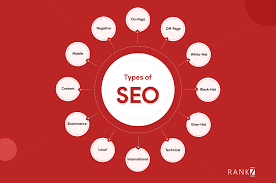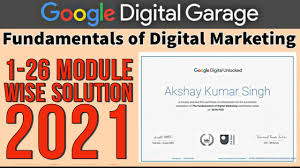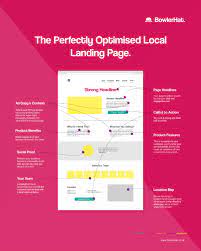Types of SEO
Search Engine Optimization (SEO) is a crucial aspect of digital marketing that helps websites rank higher in search engine results pages. There are different types of SEO strategies that businesses can implement to improve their online visibility and attract more organic traffic. Here are some common types of SEO:
On-Page SEO
On-page SEO refers to the optimization of individual web pages to improve their search engine rankings and attract relevant traffic. This includes optimizing meta tags, headings, content, images, and internal links on a webpage.
Off-Page SEO
Off-page SEO focuses on improving a website’s authority and relevance through external factors such as backlinks, social signals, and brand mentions. Building high-quality backlinks from reputable websites is a key aspect of off-page SEO.
Technical SEO
Technical SEO involves optimizing the technical aspects of a website to improve its crawling and indexing by search engines. This includes improving site speed, mobile-friendliness, URL structure, sitemaps, and schema markup.
Local SEO
Local SEO targets geographically specific searches to help businesses appear in local search results. This includes optimizing Google My Business listings, local citations, and customer reviews to improve visibility in local searches.
Voice Search Optimization
Voice Search Optimization focuses on optimizing content for voice search queries made through virtual assistants like Siri or Alexa. This includes using natural language keywords and providing concise answers to commonly asked questions.
E-commerce SEO
E-commerce SEO is tailored for online stores to improve their product visibility in search engine results pages. This includes optimizing product descriptions, images, user reviews, and implementing structured data markup for rich snippets.
By incorporating these different types of SEO strategies into your digital marketing efforts, you can enhance your website’s visibility, attract more organic traffic, and ultimately drive business growth.
7 Essential SEO Strategies: Mastering On-Page, Off-Page, and Technical Optimizations
- 1. Understand the importance of on-page SEO, including optimizing content and meta tags.
- 2. Utilize off-page SEO strategies such as link building to improve your website’s authority.
- 3. Focus on technical SEO elements like site speed, mobile-friendliness, and structured data markup.
- 4. Consider local SEO tactics if you have a physical business location to attract nearby customers.
- 5. Implement keyword research to target relevant search terms and improve your website’s visibility.
- 6. Regularly monitor and analyze your SEO performance using tools like Google Analytics and Search Console.
- 7. Stay updated with search engine algorithm changes and industry trends to adapt your SEO strategy accordingly.
1. Understand the importance of on-page SEO, including optimizing content and meta tags.
Understanding the importance of on-page SEO is essential for improving your website’s search engine rankings and attracting relevant organic traffic. By optimizing content with relevant keywords, headings, and meta tags, you can enhance the visibility and relevance of your web pages to search engines. This helps search engines understand the context and relevance of your content, ultimately leading to higher rankings in search results. Effective on-page SEO practices can significantly impact your website’s overall performance and online presence.
2. Utilize off-page SEO strategies such as link building to improve your website’s authority.
By implementing off-page SEO strategies like link building, you can enhance your website’s authority and credibility in the eyes of search engines. Building high-quality backlinks from reputable websites not only improves your site’s visibility but also signals to search engines that your content is valuable and relevant. This can lead to higher rankings in search engine results pages, ultimately driving more organic traffic to your website.
3. Focus on technical SEO elements like site speed, mobile-friendliness, and structured data markup.
To enhance your website’s search engine performance, it is essential to prioritize technical SEO elements such as site speed, mobile-friendliness, and structured data markup. Optimizing your site for fast loading times not only improves user experience but also signals search engines that your website is reliable and user-friendly. Ensuring mobile-friendliness is crucial in today’s mobile-centric world, as search engines prioritize mobile-responsive websites in their rankings. Implementing structured data markup helps search engines better understand your content and display rich snippets in search results, increasing visibility and click-through rates. By focusing on these technical SEO aspects, you can boost your website’s overall performance and attract more organic traffic.
4. Consider local SEO tactics if you have a physical business location to attract nearby customers.
Consider implementing local SEO tactics if your business has a physical location to attract nearby customers. Local SEO strategies focus on optimizing your online presence to target geographically specific searches, helping your business appear in local search results. By leveraging techniques such as optimizing Google My Business listings, managing local citations, and encouraging customer reviews, you can increase visibility among local audiences searching for products or services in your area. This targeted approach can drive foot traffic to your store and enhance your overall online visibility within your community.
5. Implement keyword research to target relevant search terms and improve your website’s visibility.
Implementing keyword research is a crucial step in any SEO strategy to target relevant search terms and enhance your website’s visibility. By identifying the right keywords that your target audience is searching for, you can optimize your content to rank higher in search engine results pages. Understanding the intent behind these keywords allows you to create valuable and engaging content that not only attracts more organic traffic but also increases the chances of converting visitors into customers. Effective keyword research is essential for driving targeted traffic to your website and improving its overall performance in search rankings.
6. Regularly monitor and analyze your SEO performance using tools like Google Analytics and Search Console.
Regularly monitoring and analyzing your SEO performance is essential for understanding the effectiveness of your strategies and making informed decisions to improve your website’s visibility. Utilizing tools like Google Analytics and Search Console provides valuable insights into key metrics such as organic traffic, keyword rankings, click-through rates, and user behavior. By tracking these metrics over time, you can identify trends, pinpoint areas for improvement, and adjust your SEO tactics accordingly to optimize your website’s performance in search engine results pages.
7. Stay updated with search engine algorithm changes and industry trends to adapt your SEO strategy accordingly.
It is crucial to stay updated with search engine algorithm changes and industry trends to adapt your SEO strategy accordingly. Search engines constantly evolve their algorithms to provide users with the most relevant and high-quality content. By staying informed about these changes and industry trends, you can adjust your SEO strategy to align with current best practices and maintain or improve your website’s search engine rankings. Keeping abreast of the latest developments in the SEO landscape will help you stay ahead of the competition and ensure that your website remains visible to your target audience.




